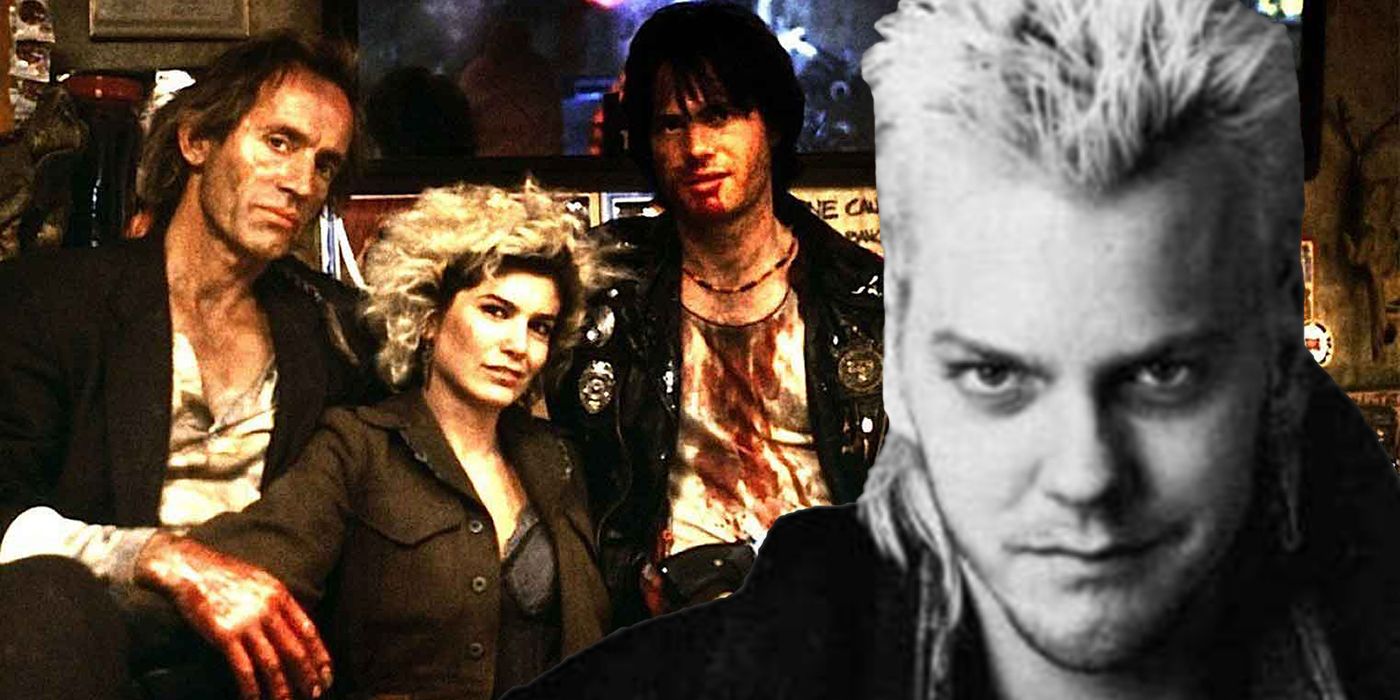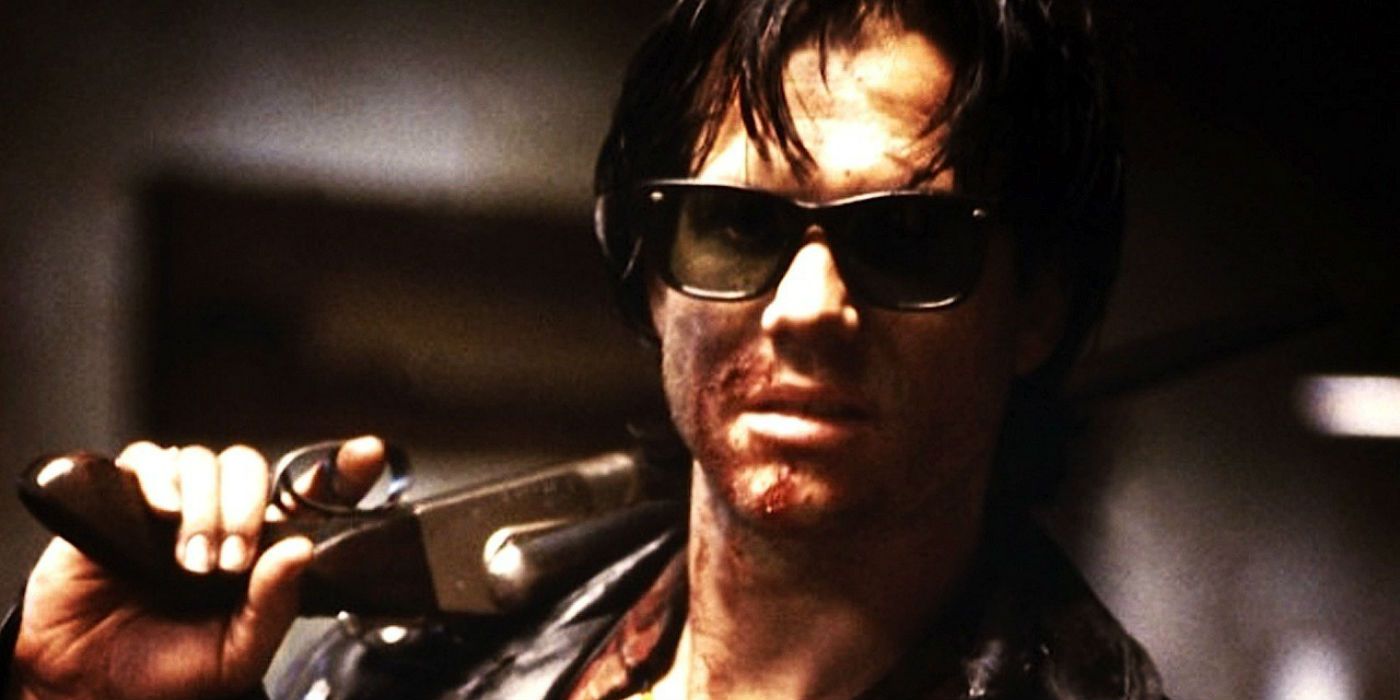1987 vampire movies Near Dark and The Lost Boys are both great in different ways, but the former tends to get brushed aside in favor of the latter. Outside of perhaps the ghost, demon, and zombie, vampires are the monster with the most movies and TV shows made about them. There's something naturally alluring about vampirism, with its ability for those turned to live forever, perform inhuman physical feats, and often possess supernatural powers that allow for easy mental manipulation. Some vampires can even shape-shift at will.
Of course, there are certain downsides to vampirism, with the most obvious being the need to consume blood to survive, presumably via the killing of humans. Immortality can also kind of be a drag, especially if one opts to fall in love with or become friends with a mortal person they will one day have to watch die. Being a vampire is a bit of a double-edged sword, and Near Dark and The Lost Boys both alternately represent opposite sides of that coin, displaying both the seductive power and freedom offered by the condition, and its not-so-pleasant side effects.
Since they came out in the same year, it's common for horror fans to end up discussing both Near Dark and The Lost Boys when talking about the vampire movies of the 1980s. Unfortunately, Near Dark doesn't seem to get nearly the level of respect as The Lost Boys, and that's not fair.
Why Near Dark Is a Better 1980s Vampire Movie Than The Lost Boys
To be clear, Near Dark being better than The Lost Boys doesn't make the latter a bad film. It's a lot of fun, and has a rocking, 1980s party atmosphere. At the same time, the story is kind of superficial, and the movie is often more concerned with being visually arresting than delving into its characters. The vampire group in Lost Boys is also a bit too large, with everyone not played by Keifer Sutherland or Jami Gertz basically blending together. The makeshift vampire family in Near Dark is much more memorable on an individual basis, with the wild and unpredictable big brother Severen (Bill Paxton), the wise but vicious father figure Jesse Hooker (Lance Henriksen) and mother figure Diamondback (Jeanette Goldstein), the unwilling child Homer (Joshua John Miller), and the sweet but forlorn Mae (Jenny Wright).
There's also the protagonist that finds themselves becoming a vampire after falling for a beautiful female bloodsucker in both films. The Lost Boys' Michael, as played by Jason Patric, really isn't given much to do outside of brood and be scared. Near Dark's Caleb, as played by Adrian Pasdar, actually begins to care for and about his new family, and for a while, accepts that his new lot in life is to be part of their ranks.
Finally, as a horror film, Near Dark is much more effective. Lost Boys often diffuses its best horror bits with laughs, while Near Dark takes things quite seriously, and doesn't hesitate to get gory and harsh. The score by Tangerine Dream is also excellent, providing a moody, dreamlike feeling to the proceedings. Near Dark also features a novel cure for vampirism, involving a blood transfusion, while The Lost Boys mostly sticks to normal lore. The Lost Boys is and was a blast, but when it comes to the better 1980s vampire film, Near Dark wins.


